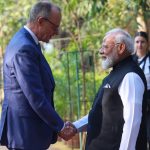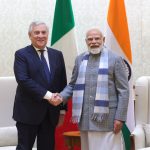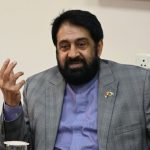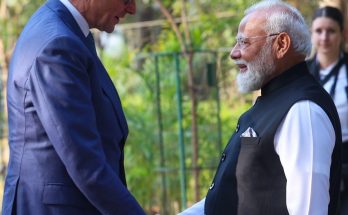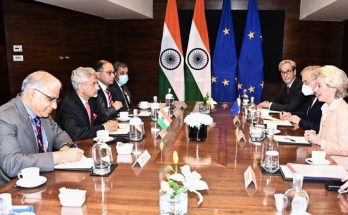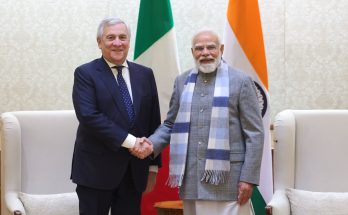 Building upon outcomes of the fourth India-US strategic dialogue held in New Delhi last month, US Vice-President Joe Biden is set for his maiden trip to India that is expected to firm up a substantive agenda for the visit of Indian Prime Minister Manmohan Singh to the US in September.
Building upon outcomes of the fourth India-US strategic dialogue held in New Delhi last month, US Vice-President Joe Biden is set for his maiden trip to India that is expected to firm up a substantive agenda for the visit of Indian Prime Minister Manmohan Singh to the US in September.
Mr Biden is expected to be in India July 22-25, and will hold wide-ranging talks with Indian Prime Minister Manmohan Singh, Vice-President Hamid Ansari and External Affairs Minister Salman Khurshid.
Mr Biden’s talks in New Delhi will build on areas of convergence seen during Mr Kerry’s visit and will seek to narrow down differences on a host of trade-related irritants and strategic issues that could dampen the newly-revived tempo of the India-US relationship.
Romance versus Reality
Ever since the India-US relationship was transformed by a trailblazing civil nuclear deal in the summer of 2005, there has been a growing chorus of opinion that the soaring promise of this crucial engagement has bumped against hard rocks of reality. There are also eternal romantics who relentlessly hunger for the climactic high of the nuclear deal, but realists know it better: the highs have to be squared with the blandness of everyday cohabiting, holding hands as well as quibbling over real and imaginary grievances. 
Trade Diplomacy: Gripes and Grouse
For now, there seems to be a lot to gripe about, especially on the trade front. The US trade and industry lobbies have upped pressure on India to fast-track crucial economic reforms that could open the gate for the much-needed American investment. They understand the pugnacities of India’s coalition politics, but still find it hard to buy the argument that some of these reforms that require legislative approval will have to wait till the summer of 2014 when India is expected to be through with its messy elections. US trade officials want India to create an enabling environment of business and innovation, and this includes revisiting its intellectual property rights regime that is playing a spoiler to the US pharma giants’ ambitions in the Indian market.
India, too, has its share of legitimate gripes. The proposed US immigration reforms, if they go through, will hit India’s IT industry hard and can take some of the shine off the Great American Dream that still has many Indians in thrall. In wide-ranging interactions with US trade officials and industry leaders in Washington last week, Finance Minister P. Chidambaram and Commerce and Industry Minister Anand Sharma batted vigorously for the country’s prized IT sector, making the point that the proposed new visa fees are “discriminatory” and would be construed as “non-tariff trade barrier.”
The Big Deal
But despite these festering differences, the good news is that both sides are not ready to let go of multifarious win-win opportunities that await them if the full economic potential of the relationship were to fructify. Mr Sharma has raised the bar: he said in Washington that the current $106 billion bilateral trade is too little for the defining partnership of the 21st century, and has suggested an ambitious target of $500 billion by 2020. He also indicated that India was at long last ready to enter into talks for a free trade agreement (FTA) with the US.
The Way Ahead
Hopefully, Mr Biden will appraise afresh these issues with his Indian interlocutors in New Delhi, and give a positive spin to the huge untapped economic potential of the engagement between the world’s two largest democracies. The visit could see, among other things, substantive progress on an early works commercial agreement between US nuclear behemoth Westinghouse and the Nuclear Power Corporation of India Limited (NPCIL). This pact could set the stage for finding a way around India’s nuclear liability law to fructify the path-breaking nuclear deal that transformed the once-estranged democracies into engaged partners.
and give a positive spin to the huge untapped economic potential of the engagement between the world’s two largest democracies. The visit could see, among other things, substantive progress on an early works commercial agreement between US nuclear behemoth Westinghouse and the Nuclear Power Corporation of India Limited (NPCIL). This pact could set the stage for finding a way around India’s nuclear liability law to fructify the path-breaking nuclear deal that transformed the once-estranged democracies into engaged partners.
Af-Pak Riddle
Besides economic issues, one can expect some serious talk on a host of strategic issues where differences of perception and approach need to be reconciled urgently, or at least managed in such a manner that they don’t shadow the larger relationship. In his talks in New Delhi last month, Mr Kerry had assured that India’s interests will not be overlooked or undermined while the US pushes the contentious Taliban reconciliation process. New Delhi has reluctantly agreed to play along for the time being, but will be looking afresh to see that the so-called “experiment” does not trample on all the good work India has done in the last decade to create a new narrative of opportunity in Afghanistan. New Delhi will also be looking for stronger language from Washington on the “sanctuaries of terror” in the Af-Pak region and their patrons across the border. 
Against this complex backdrop of economic expectations and the need to forge strategic understanding on a host of global and regional issues, Mr Biden will have to do a delicate diplomatic tightrope walk when he comes to New Delhi next week to galvanise this crucial relationship that is itching for its next transformative moment.
(Quiz: Readers of India Writes, www.indiawrites.org, are invited to identify personalities featured in the four photographs that accompany this article. The first 3 readers to identify all the pictures get a copy of Barack Obama’s The Audacity of Hope. Readers can send their submissions, along with their contact details, to ed****@*********es.org)
Author Profile

- Manish Chand is Founder and Editor-in-Chief of India Writes Network (www.indiawrites.org) and India and World, a pioneering magazine focused on international affairs. He is CEO, Centre for Global India Insights, an India-based think tank focused on global affairs.
Latest entries
 India and the WorldJanuary 13, 2026India, Germany raise the bar for defence, economic ties
India and the WorldJanuary 13, 2026India, Germany raise the bar for defence, economic ties India and the WorldDecember 12, 2025India-Italy bonding: Tajani’s visit raises the bar for business, maritime ties
India and the WorldDecember 12, 2025India-Italy bonding: Tajani’s visit raises the bar for business, maritime ties In ConversationNovember 26, 2025G20 is a Force for global Good
In ConversationNovember 26, 2025G20 is a Force for global Good articlesNovember 26, 2025Rescuing G20 from North-South divide: Ubuntu Moment
articlesNovember 26, 2025Rescuing G20 from North-South divide: Ubuntu Moment

